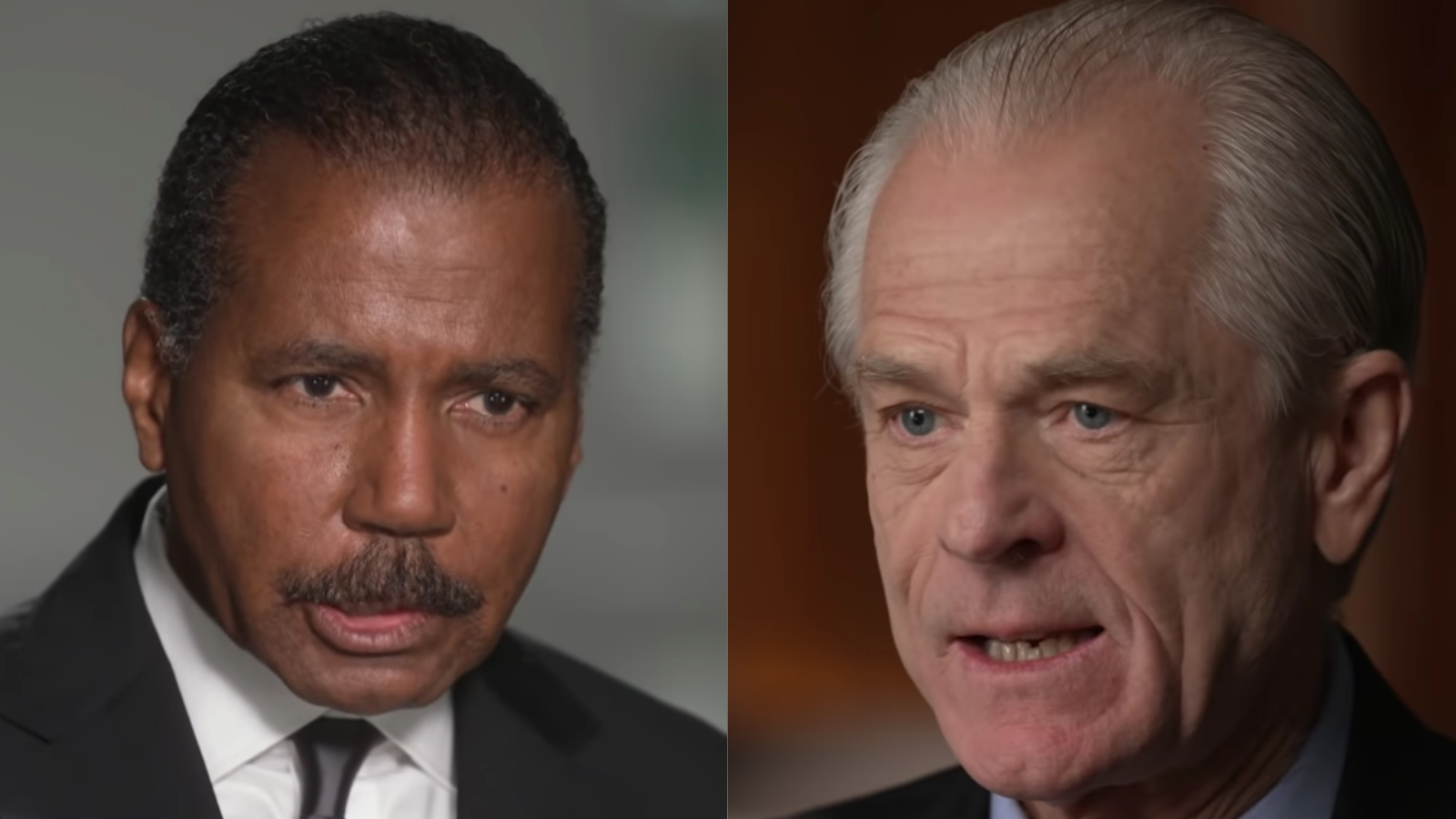If you are going to call out a primetime news program, make sure you have your facts straight.
In a sit-down interview on 60 Minutes, White House trade adviser Peter Navarro was fact-checked not only by journalist Bill Whitaker but show producers on the reputed news program.
Recently designated by Trump as the Defense Production Act policy coordinator, Navarro leads the federal response of getting personal protective equipment to workers in the medical industry. Whitaker notes in the episode's opening statement that Navarro seemed more interested in challenging the credibility of the 60 Minutes team than anything else.
"Navarro was at times more interested in questioning 60 Minutes' record than in discussing preparations the Trump administration made for this global pandemic," the veteran journalist said during his introduction to the interview segment.
Whitaker's question asking why other countries had more intelligence on the coronavirus seemed to particularly annoy Navarro.
"You say this could not have been anticipated," Whitaker began. "Intelligence agencies anticipated it, other foreign countries anticipated it…"
Then, Narravo interrupted him mid-sentence saying, “let me push back on that, let me push back a little bit on that.”
“I don’t know what you mean,” Navarro said. “It’s like if an intelligence agency said a global pandemic could happen, right? I mean, I’m sure they’ve been saying that for decades and nobody took them seriously. Why? I mean, black swans are hard to sell. This was the 500-year flood, this hasn’t happened since 1917. You can line up every president since then and say, ‘Why didn’t you think this could happen again,’ but that’s not productive right now.”
Navarro’s argument was that Trump did the best he could do because we are in unprecedented times. He then alleged that the show hasn't criticized any recent president for their response to and preparation for a possible public health crisis.
“Show me the 60 Minutes episode a year ago, two years ago or during the Obama administration, during the Bush administration, that said, ‘Hey a global pandemic coming, you got to do XYZ and by the way, we would shut down the entire global economy to fight it,’” he said.
"Show me that episode, then you'll have some credence in terms of attacking the Trump administation for not being prepared," Navarro continued.
"I guarantee we did," Whitaker responds before the segment cuts to clips from the Obama and Bush administrations that showed medical experts discussing the swine flu and the avian flu.
In the footage from 2005, Dr. Anthony Fauci, America’s top disease expert and member of the White House coronavirus task force, discussed the nature of infectious viruses like the avian flu and why the country needs to take them seriously. On PBS that year, he even talked about methods to prevent a pandemic, including practices seen in today’s social distancing guidelines.
When asked if this is the best response the White House can come up with, Navarro said the Trump administration is doing better than anyone else could.
“You say, ‘This is the best you can?’ It’s, like, oh, somebody could’ve done better. Really? Who could’ve done better on this? I mean, really, think about this,” he responded.
In a scary bit of irony, The New York Times reported earlier this month that Navarro was the first official to blow the whistle on the danger of the coronavirus. He wrote a memo to Trump in late January warning that a pandemic could threaten the health of millions of Americans.
“The lack of immune protection or an existing cure or vaccine would leave Americans defenseless in the case of a full-blown coronavirus outbreak on U.S. soil,” Navarro’s memo read. “This lack of protection elevates the risk of the coronavirus evolving into a full-blown pandemic, imperiling the lives of millions of Americans.”
On April 6, Trump revealed that he had not read any memos before addressing the nation, Politico reported. He said he didn’t see any memos and he “didn't look for them.”
HBCUs are facing many challenges managing coronavirus responses and need your support. Donate to the UNCF fund today to help students impacted by the pandemic.
